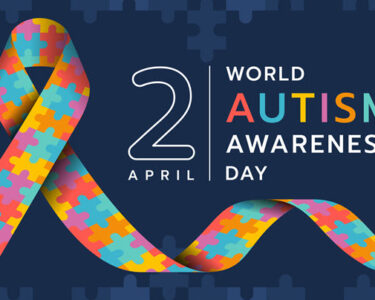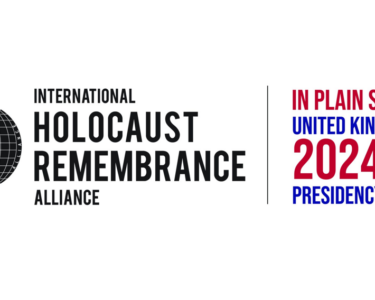Hampton School is a UCL Beacon School. We are privileged to work with Lead Teacher Mr Andy Lawrence – a gifted classroom practitioner and longstanding partner and advocate for the programme and the wider work of the Centre. As a Beacon School, Hampton School have embedded the research informed approach of the Centre, embraced our pedagogy and practice and developed a meaningful programme of quality Holocaust teaching and learning. The Beacon School work has been foundational to the schools evolving specialism in genocide education and prevention. The student group @genocide8020 has been truly inspirational in its embodiment of informing, inspiring and empowering young people. Their initiatives, inspired by foundational work of Mr Lawrence’s quality teaching about the Holocaust, has rightly garnered local, national and international interest. So, on this Genocide Awareness Day, we share this blog – serving to inspire and empower other Beacon alumni, and teachers everywhere that it is time to talk and teach about genocide – mass atrocity, identity-based violence and human rights issues: that a strong commitment to Holocaust education should underpin the content and pedagogy of those learning episodes and that Holocaust and genocide education is both distinct and complimentary.
‘Genocide. What’s that?’
‘In 1948, after years of tireless lobbying, Raphael Lemkin decided to stop talking about the Genocide Convention during social occasions. When asked about his life’s work by fellow partygoers he would good-humouredly retort ‘Genocide, what’s that?’ (Totally Unofficial The Autobiography of Raphael Lemkin edited by Donna-Lee Frieze). Whilst this trait reflects Lemkin’s state of mind at the time his comment could also be used to highlight the lack of awareness amongst students of the man who coined the term ‘Genocide’ and modern genocides in general (https://www.bbc.co.uk/schoolreport/35060491).
The following sets out five reasons why I think that teaching about post-Holocaust genocides (in addition to the Holocaust) is important. I hope that it will be a stimulus to debate and conversation…as well, perhaps, as a call to action for colleagues around the country.
1. Because they happened and the stories need to be told
Every year choices about what to teach are made in every History Dept in every school. There are tough decisions made about what to include and what to leave out. The Holocaust is the only historical event that is required to be taught as part of the National Curriculum (Page 4 History programmes of study : key stage 3 National curriculum in England). So, why then should ‘other genocides’ need to be on the agenda for a History dept as well? I would argue that teaching about the genocide in Srebrenica, the Genocide Against the Tutsi and the genocide in Darfur is important and necessary simply because they happened. The gravity of the crimes committed against Bosniaks, Tutsi, Fur and others is such that they need to be part of the canon. The word canon derives from the Ancient Greek term that means ‘measuring rod’ or ‘standard’. Each of these events is unique but all are so far removed from how we would expect a modern civilisation to act that young people need to understand the causes, course and consequences of such events. The Government’s response to the House of Commons Education Committee’s report on Holocaust education stated that ‘The teaching of other genocides and atrocities is an important aspect of young people’s understanding of the modern world.’ (Page 4 House of Commons Education Committee Holocaust education: Government Response to the Committee’s Second Report of Session 2015-16). Whilst there is never enough time within the school year for us to teach about every important I would argue that genocide needs to be included.
2. Never again never actually happened – a part of the narrative of the Holocaust
Gela Seksztajn was an artist who was known for her portraits and paintings that became part of the hidden Ringelblum Archive. On 1 August 1942 she wrote her last will and testament which included the statement ‘Farewell, my friends. Farewell, the Jewish people. Never again allow such a catastrophe.’ (https://www.yadvashem.org/museum/museum-complex/art/articles/last-will.html). Memorials at Treblinka held the same message and Richard Dimbleby voiced a similar sentiment from Belsen: “There is one thing you must do and that is vow with all your heart such things will never happen again.” (https://www.express.co.uk/news/history/1262724/Belsen-horrors-concentration-camp-richard-Dimbleby-jonathan-dimbleby).
There is the danger that students in our classrooms can close their books on the Holocaust with the liberation of Bergen-Belsen and conclude that the chapter of history which involved such a monstrous crime was closed and never to be repeated. It is essential for their understanding of the world to understand that was not to be the case…and that despite the protestations of ‘Never Again’ from US Presidents, UN Secretary Generals and politicians closer to home genocide was to be repeated. Again and again. So, studying ‘other genocides’ is important not only of themselves but also as a part of the narrative of the legacy of the Holocaust.
3. It is our story – British responses, international responses…and students in classrooms around the country have links & heritage
The crime of Genocide has been committed right around the world…and yet each is, I would argue, a part of our national story. Martin Shaw has argued that ‘the British state and elements of elements of identifiably British populations have been involved directly and indirectly in genocide’ in a number of different aspects ranging from Britain’s colonial past to her role in the post-Cold War world (Martin Shaw ‘Britain and genocide: historical and contemporary parameters of national responsibility’. Review of International Studies, Vol. 37, No. 5 (December 2011), pp. 2417-2438). Britain’s response to the Holocaust and her reactions to genocides in Rwanda, Bosnia and Darfur are questionable and these aspects of our history deserve critical examination.
These are histories that should matter to all young people but may particularly resonate with the Sudanese, Bosnian and Rwandan communities who are key parts of our community and essential components of our classrooms. The need to ‘respond to pupils’ needs and interests and to questions rooted in their communities’ is an important one in every History classroom and further builds the case for the teaching of ‘other genocides’ (Teaching History 178 March 2020 ‘What’s the wisdom on enquiry questions’).
4. ‘Learning lessons’ needs a foundation of historical understanding.
Young people are often asked to study past atrocities in order to affect change in their own time and communities. Arthur Chapman’s recent piece highlighted the debate around the propensity to learn ‘lessons’ from the Holocaust (Holocaust Education Contemporary challenges and controversies edited by Stuart Foster, Andy Pearce, Alice Pettigrew UCL Press 2020). Other genocides increasingly fit into this arena with either explicit or implicit requests that students use their understanding to create a more tolerant and cohesive future. If these initiatives are to succeed, if young people are to meaningfully ‘remember’, memorialise and draw ‘lessons’ from more recent genocides then it is important for young people to know what happened. It can then be for students to decide so that similarities and lessons can be drawn based on evidence and that ‘lessons’ have foundation.
5. Genocide prevention – ensuring future activists are educated from the beginning
Some teachers see education about events in Bosnia, Rwanda and Darfur as ‘allowing [students] to consider whether and how genocide can be prevented.’ (Alison Stephen, ‘Patterns of genocide: can we educate Year 9 in genocide prevention?’ Teaching History, December 2013, No. 153). If we want to prevent genocide from happening then we need to know what it looks like and how and why it happens. Similarly, genocides in Rwanda, Bosnia & Darfur were not talked about as such until it was too late and political pressure was not effectively applied in domestic or international settings. Should we wish to ensure a more informed discourse in the future it would make sense for future voters, commentators and leaders to be educated about genocide in their school years. Raphael Lemkin did not believe that the Genocide Convention would stop attempts to destroy groups on its own. Instead he saw it as a “framework…a rallying point for thinking and acting.” (Xxx – xxiv Totally Unofficial The Autobiography of Raphael Lemkin edited by Donna-Lee Frieze). If through studying the Holocaust and other genocides our young people start to think and act to prevent these acts then ‘Genocide, what’s that?’ might be a question that we still need to ask…but in a different sense to Lemkin in 1948.
P.S …and today, on UN Genocide Prevention Day students from four school publish their booklet entitled ‘Genocide, What’s that?’. Their collaborative effort proves that armed with knowledge and a secure understanding; amazing things are possible. I suspect that Lemkin would be proud.’



